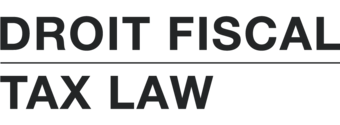
Photo by Panumas Nikhomkhai
The Canada Revenue Agency disposes of a wide range of powers to gather information and compel the production of documents. In most cases, those powers are exercised in the context of an audit where the identity of the taxpayer is known. Thus, a request for information or documents is generally targeted and somewhat precise.
The powers of the CRA must be looked at in conjunction with the requirement under the Income Tax Act to keep books and records for a minimum period of six years or as prescribed. Thus, the CRA generally asks for information or documents with the expectation that taxpayers have them readily available. If they don’t, the CRA has the benefit of assumptions of fact. In other words, it can assume facts and let taxpayers disprove those facts, the rationale being that taxpayers should be aware of their circumstances and ready to substantiate their tax filings. This right to assume facts is subject to some exceptions and limitations, the main one being that the burden rests on the CRA should it decide to assess a taxpayer outside of the “normal reassessment period.”
The “uproar” with the case of Shopify is that the CRA sent a demand for information to Shopify asking for its client list. Since such demand does not name a specific person, but targets a group of “unnamed persons,” it can be perceived as overreaching. To counterbalance any possible abuse, before issuing such demands the CRA must first obtain the authorization of a judge of the Federal Court. The judge must be satisfied by information on oath (i.e., sworn affidavit) that the demand relates to a person or group of persons that is ascertainable and that the demand is made to verify compliance by the person or persons in the group with any duty or obligations under the Income Tax Act. In rendering his or her decision, the judge may impose such conditions as are warranted.
The CRA has used this tool in the past, most noticeably with Ebay and some cryptocurrency platforms. Although the CRA has been mostly successful, it was defeated in one attempt when it tried to ask for Hydro-Quebec’s list of commercial customers. In light of the fact that the threshold to access client lists is relatively low, such requests by the CRA are likely to increase. Other factors also play into this. From a technological standpoint, since information is now held in electronic databases, a request with specific parameters should no longer be too difficult to comply with. Further, these requests targeting specific groups may yield “higher returns.”
This article from the National Post is interesting because it sheds light on another situation unfolding in parallel with the exercise by the CRA of its powers, that is the requests from other countries for the same information. Canada has signed many information exchange agreements with other jurisdictions. In a post-pandemic world where most countries are short of money, these agreements will be relied upon more often. Thus, technology and country cooperation have made the world smaller with tighter tax enforcement.
